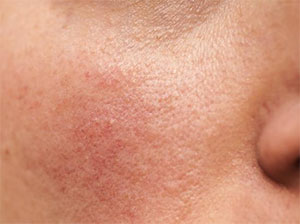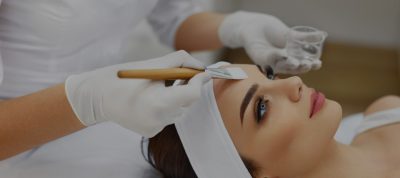
Rosacea is a chronic but very common skin condition. Cheeks, nose, chin, eyelids, or forehead become inflamed and red, often with small, red, pus-filled bumps. On some cases skin gets coarser and thicker with a bumpy texture.
Although rosacea can occur in anyone, it tends to be more common in middle-aged women and those with fair skin. If left untreated, it tends to worsen over time. It is also important to know that sometimes it can be confused with acne and, if treated in the wrong way, it can lead to a worse problem.
While there is no cure or proven cause, rosacea can be controlled by avoiding certain triggers:
- Spicy foods
- Very hot or very cold showers
- Alcohol
- Coffee
- Extreme temperatures
- Extreme exercise
- Stress
- Sun Exposure
- Hot foods and beverages
- Some drugs such as cortisone
Natural Remedies for Rosacea
- Licorice is a very strong anti-inflammatory. Look for this naturally sourced ingredient on over the counter rosacea ointments or creams.
- Rosehip seed oil strengthens distended capillaries and reduces redness of the skin due to its astringent qualities.
- Chamomile , applied in cold compresses, is a terrific anti-inflammatory and skin soother.
- The feverfew herb in capsule form can be used as an effective anti-inflammatory treatment for rosacea or severe acne.
- Tea tree oil is a potent antimicrobial and anti-inflammatory. Be sure to make a patch test before using it because it’s strong and doesn’t work for everyone.
To minimize rosacea symptoms, avoid the above triggers, protect your face using sunscreen, manage stress levels, eat a proper diet, try out some of the above natural remedies, and use products indicated for sensitive skin: no harsh ingredients, colorants, and perfumes.
If you experience signs of rosacea, see your doctor for a diagnosis and proper treatment.











